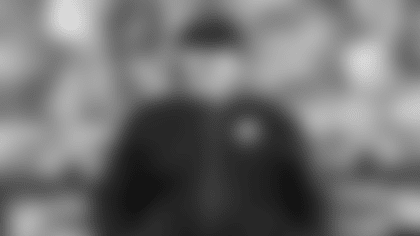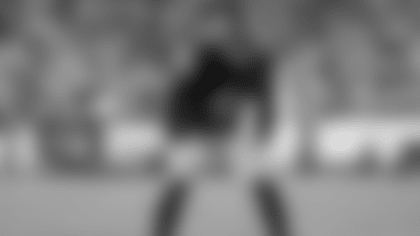Q. Bringing in players from other teams theoretically could upset the chemistry in the locker room. But can it also help in that the new players tell stories about what it was like for them in other places?
Take a look at some behind the scenes photos from the 2017 team photo shoot.
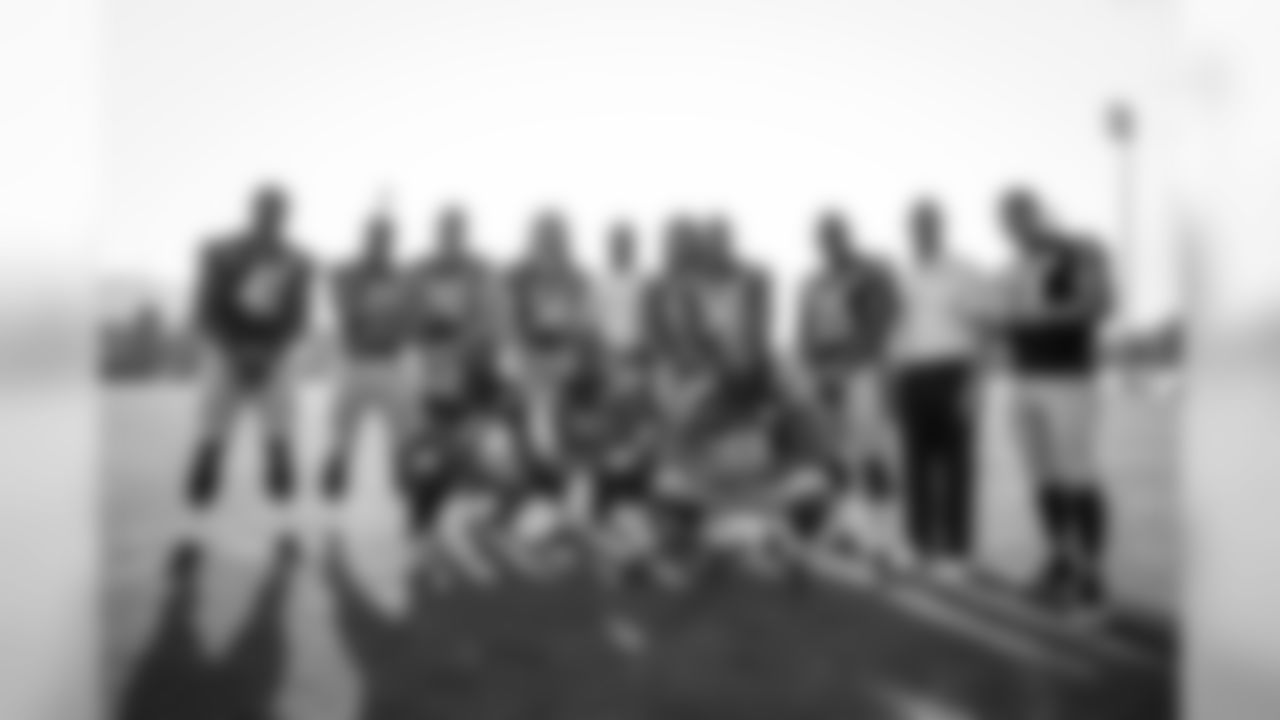
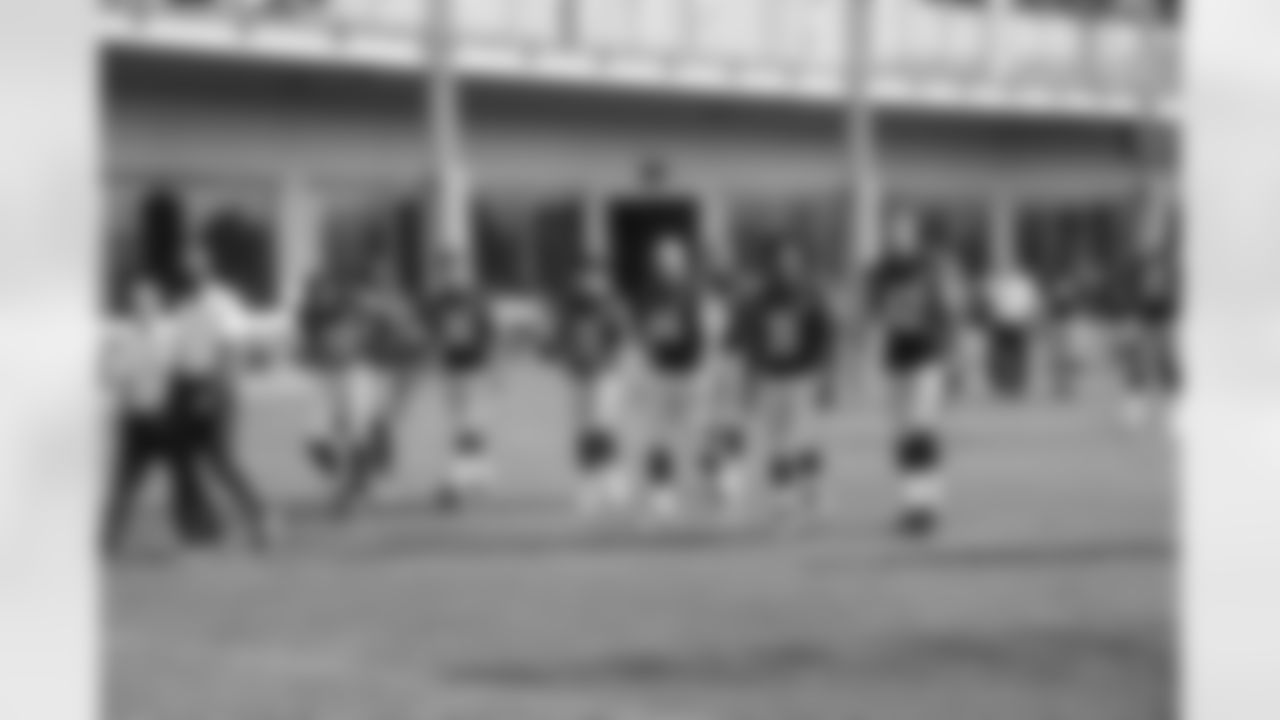
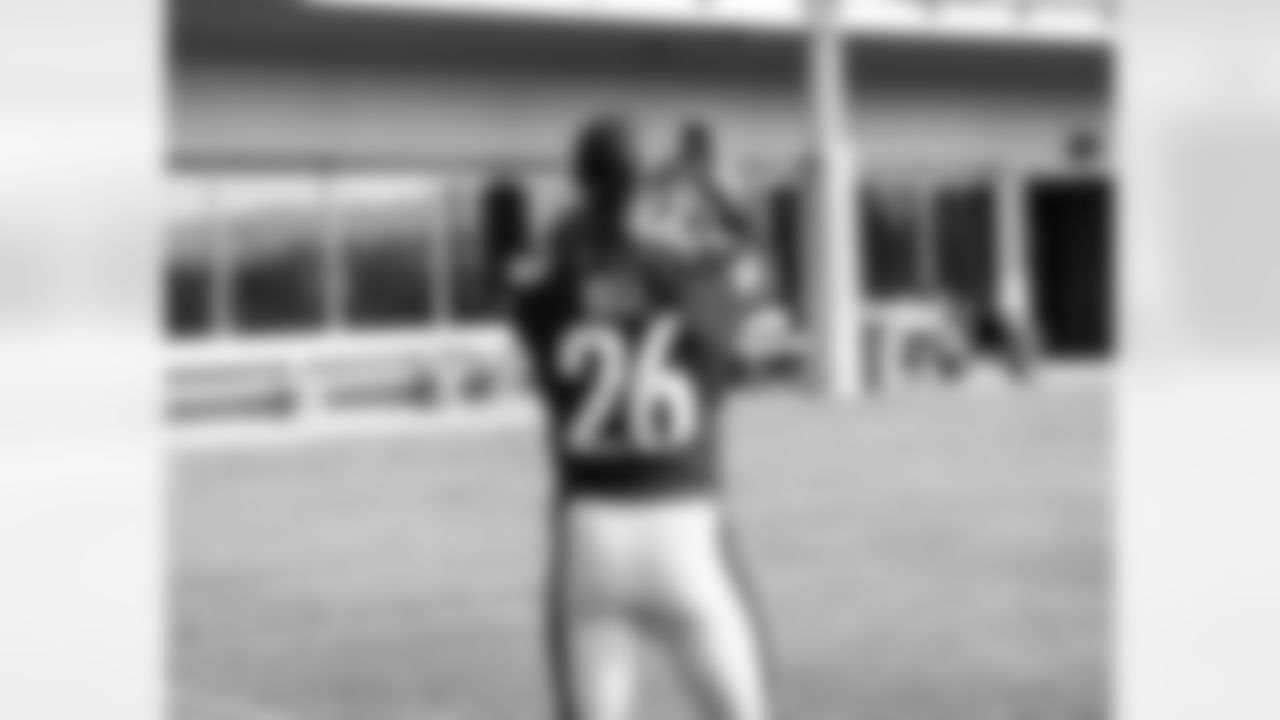

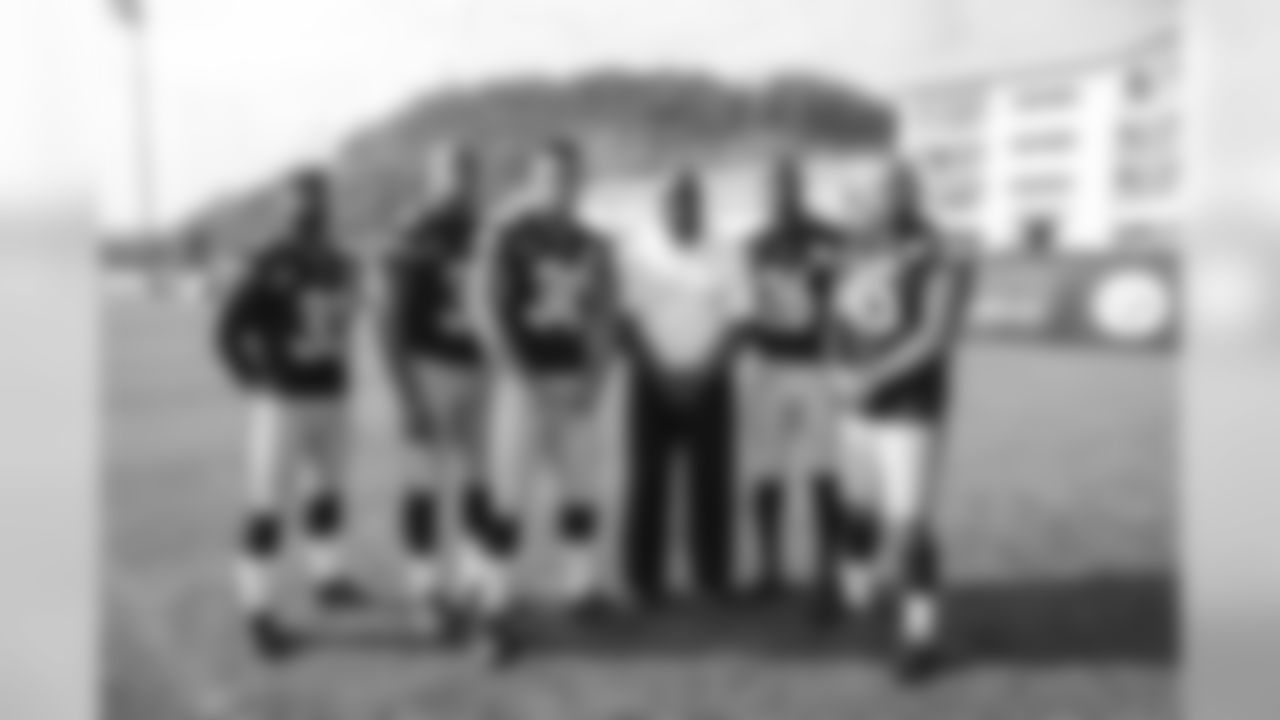
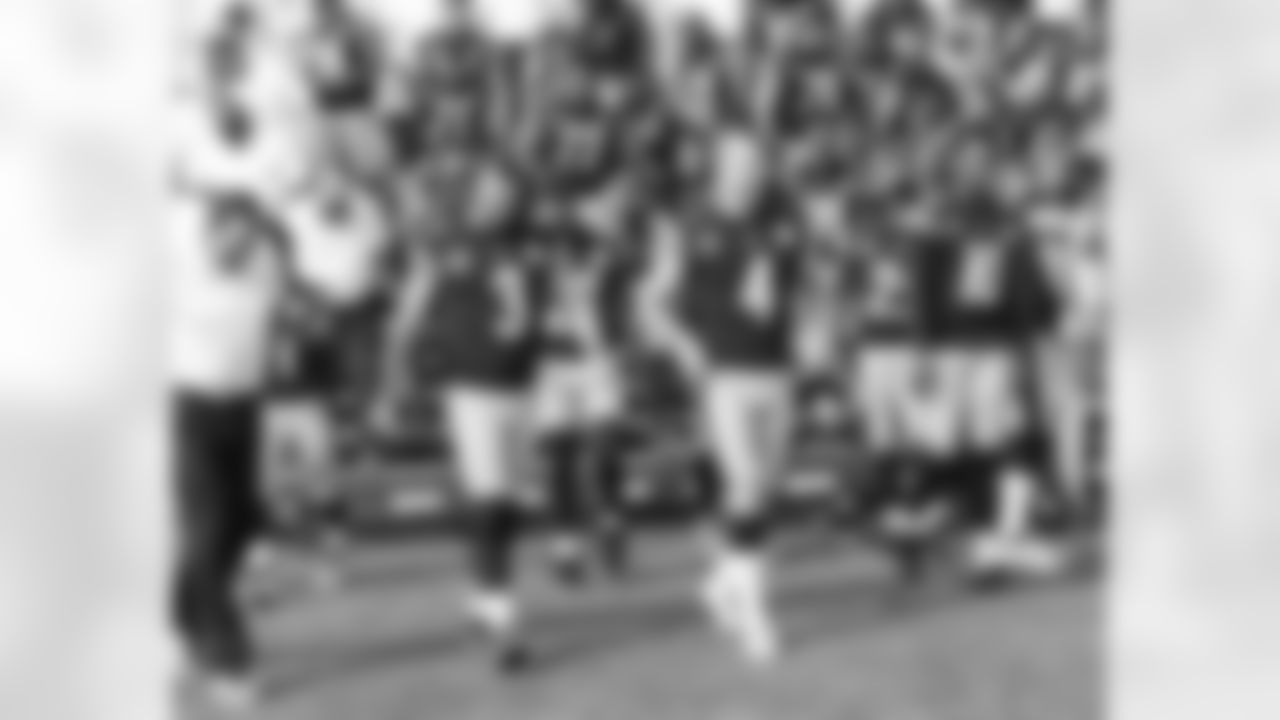
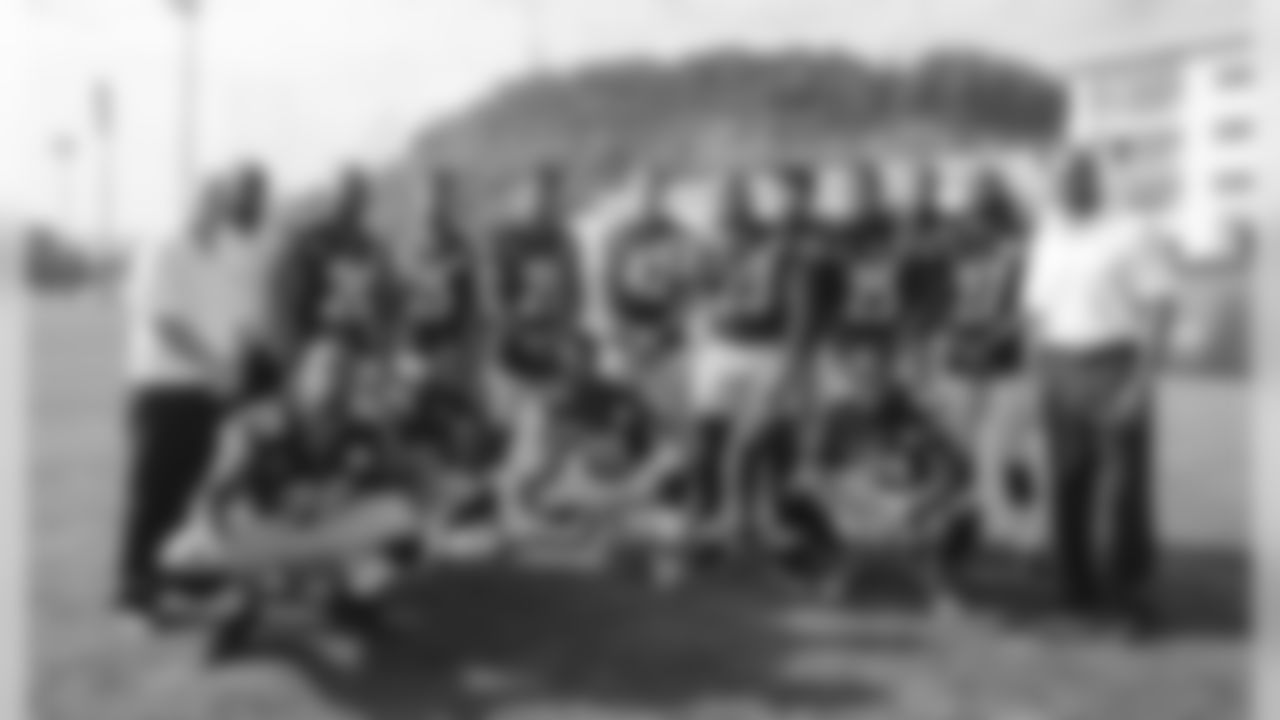
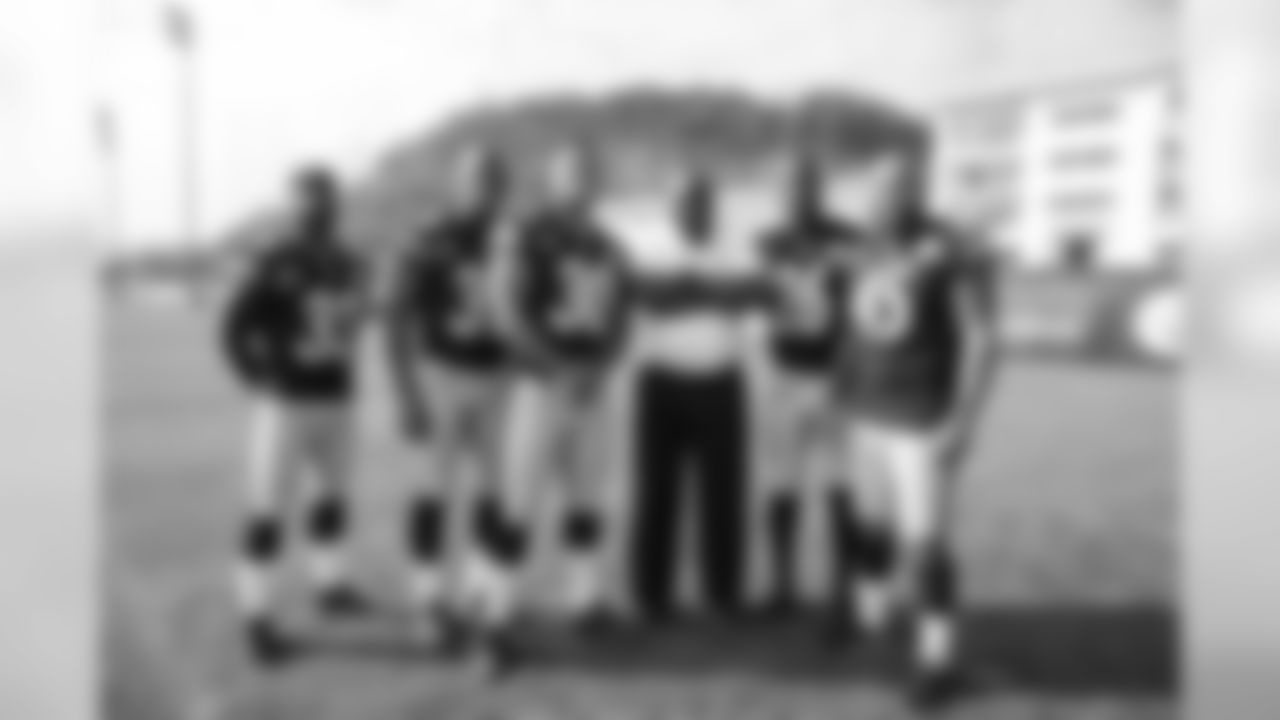

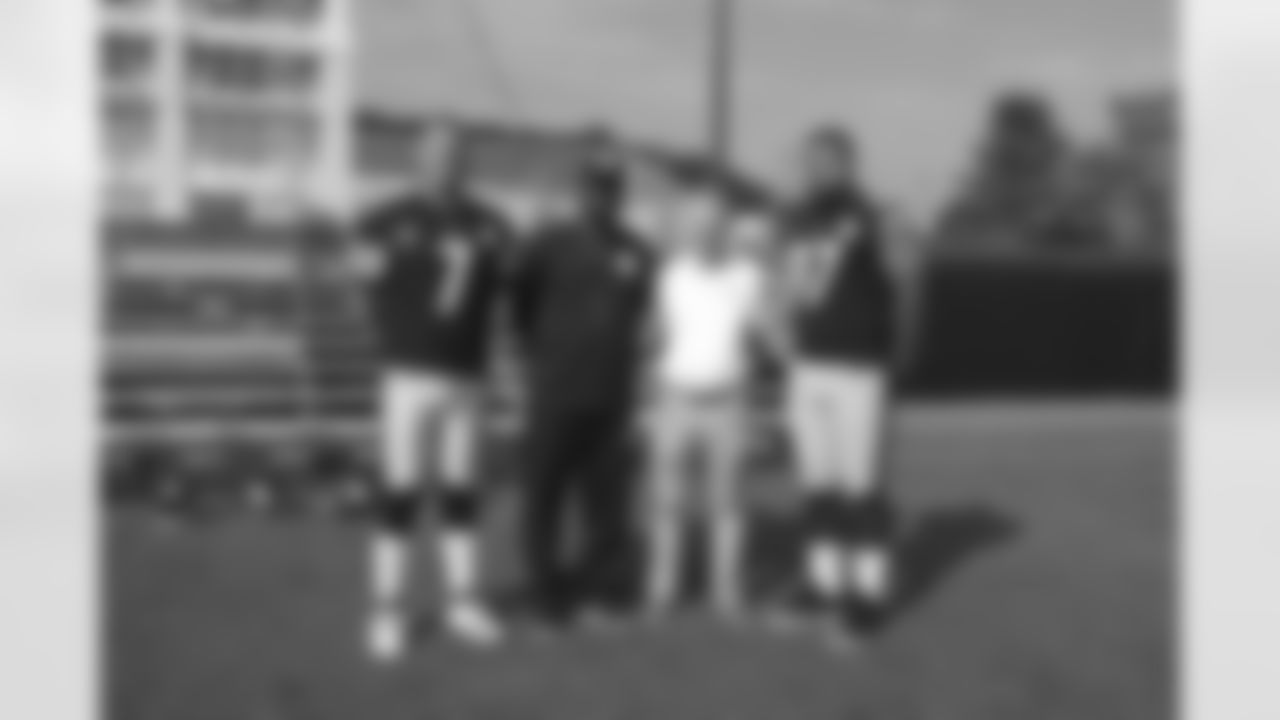
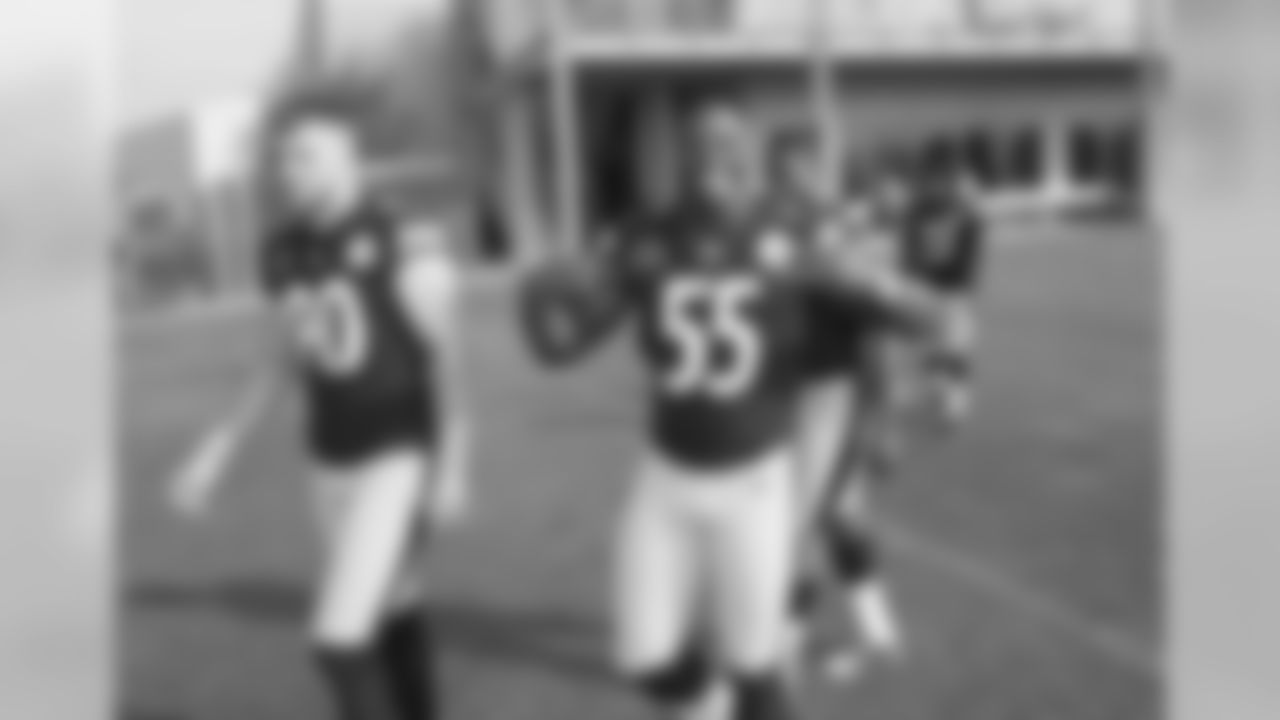



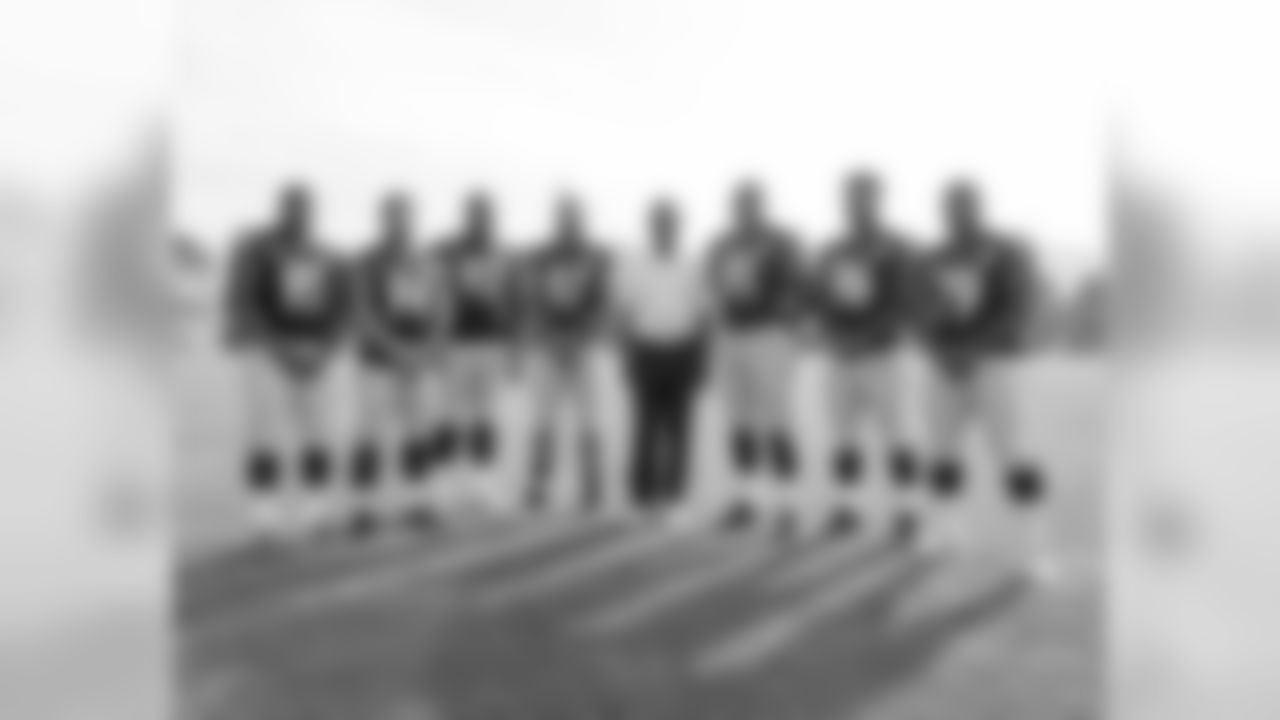

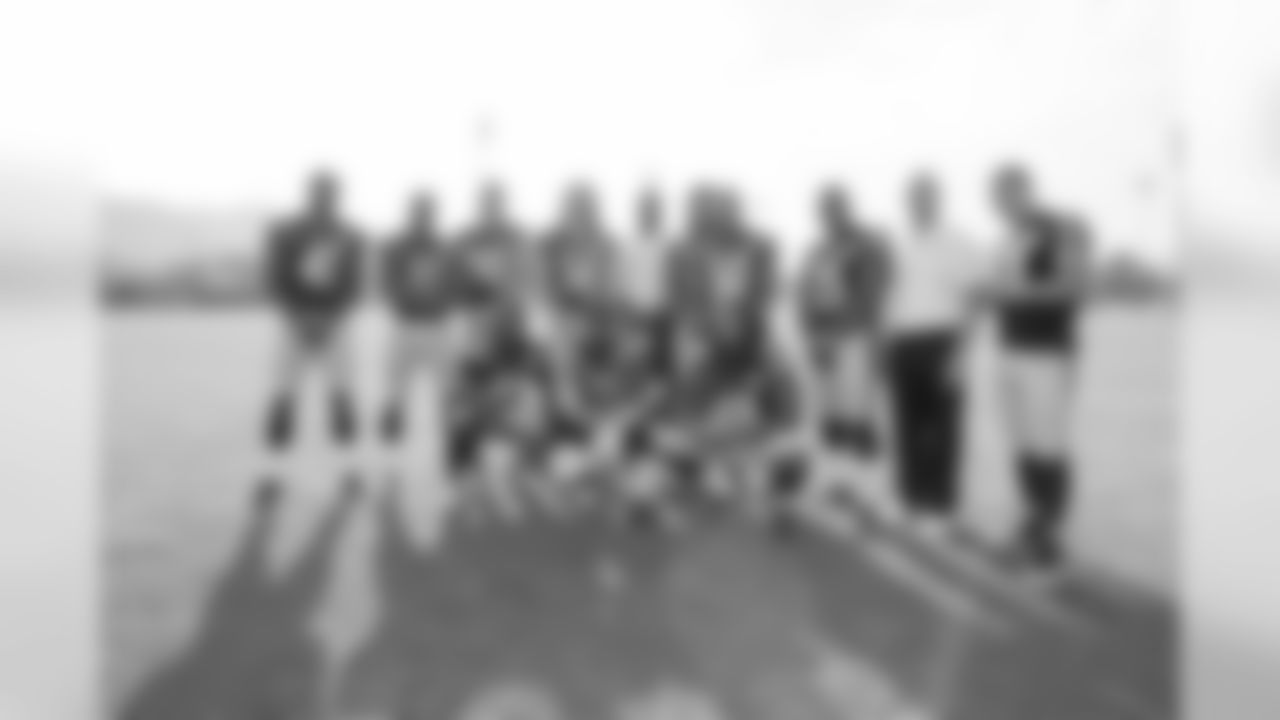
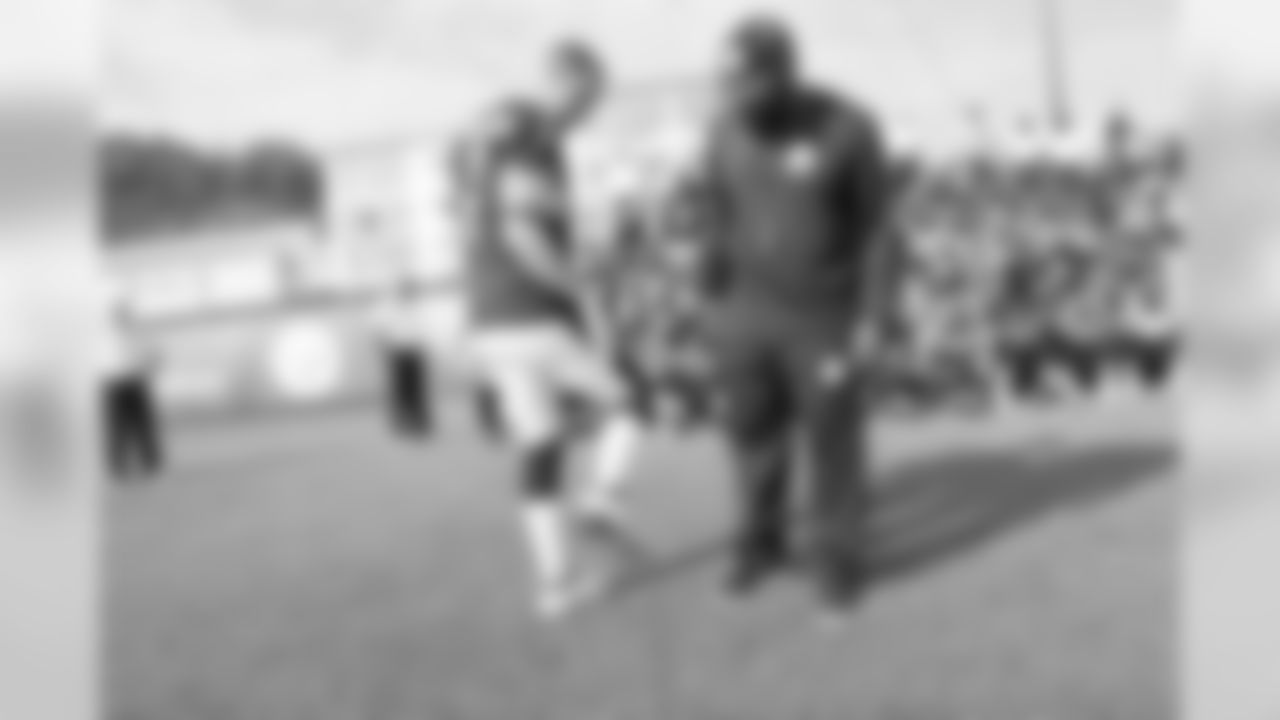


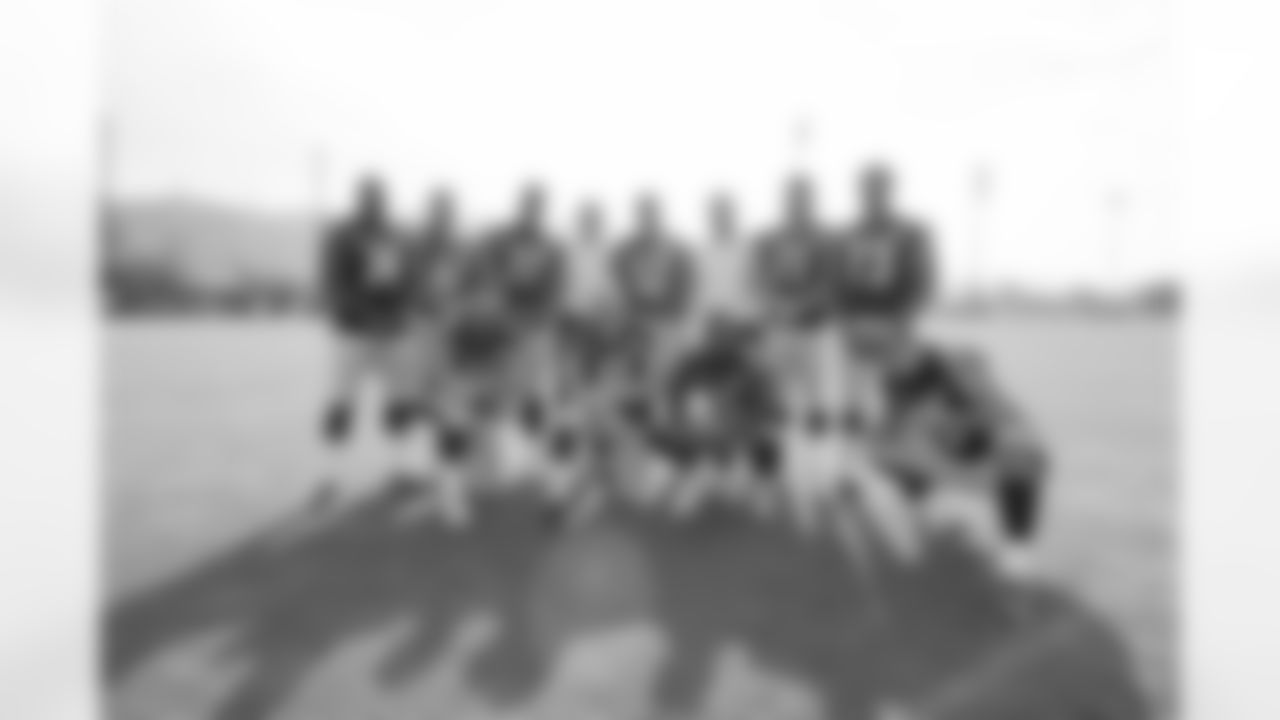
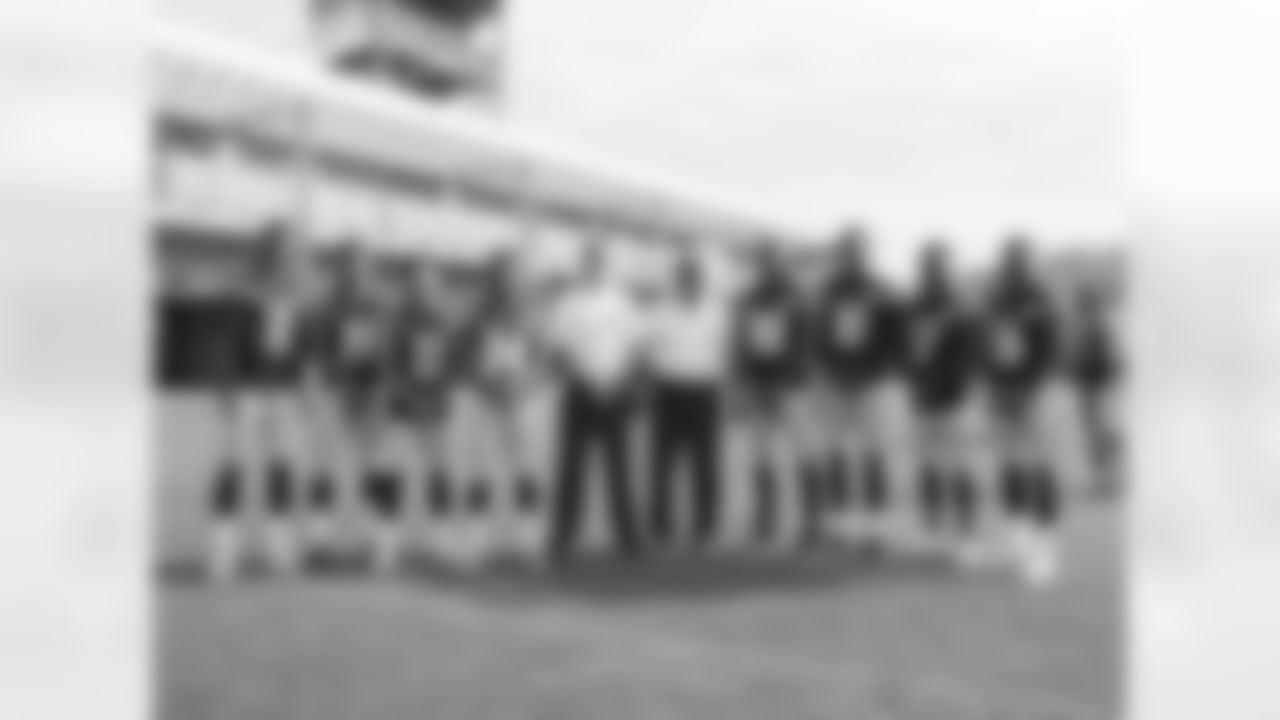

A. It's true, they probably gain a little appreciation for where they are when they hear some horror stories told by some of the guys who have been displaced. That's just a part of this business. More than anything, I think it's the new guys working hard to fit in and understand what the climate is here. But make no mistake, the informal time, the exchange of stories, is big fun and a part of it.
Q. When you talk to Joe Haden or any of the veteran guys you've brought in from other teams over the course of your time here as the head coach, what did they tell you was attractive to them about the Steelers?
A. Very rarely do I ask those questions. More than anything, I ask them to cast out any preconceived notions they might have and be open to learning new things and be open to putting both feet in this environment and how we do things. You can waste a lot of time and miss a lot of opportunities asking questions about 'why,' or suggest you did things differently in another location. It's about assimilating completely into this culture, and all the guys I've had over the years understood that, and we spend little time talking about other things.
Q. When a situation occurs like the one this past week, where your upcoming opponent was playing on Monday night, do you watch the game on television?
A. Sometimes I'll watch. The Vikings played in the first of those two Monday night games, and so it started at 7 p.m., which was too early to watch a lot of it because I was still at the facility working. Most of the time when the Monday night game starts at its regular time and we're in-season, that is the case. I will watch it on TV.
Q. Is there ever anything you can glean from a network telecast that you might not learn from just watching video?
A. Not really. The commentary is for the entertainment of fans. You might pick something up on television if they show the sideline and you see people communicating or interacting, or the exchange of personnel. But as far as the commentary, no.
Q. What are the characteristics of a Mike Zimmer defense?
A. They're fundamentally sound. They're not a big-menu group. They're small-menu, big-understanding. They're not going to be out of place, and that's going to allow them to play fast. They like the safeties on the line of scrimmage. You think back to the Cincinnati Bengals with Reggie Nelson coming off the edge in short-yardage; now you just insert Harrison Smith. They're a small-menu group that plays fast and physical.
Q. Does Zimmer utilize these Vikings players in the same ways he utilized his Bengals players? In other words, does he have someone playing the role of Geno Atkins, as an example?
A. No question. He utilizes guys in the same way. The Vikings defensive end combination is very much like Carlos Dunlap and Michael Johnson were when he was coordinating the Bengals defense, even down to the No. 3 defensive end. Brian Robison is very much like Wallace Gilberry in terms of his rotation and the things he does in a game.
Q. How would you describe Dalvin Cook as a running back?
A. He's got great perimeter speed, but I think his interior running is an underrated skill-set. He's got great pick-and-vision in terms of working inside. He does have a distinguishing trait in terms of beating people to the perimeter, but he's got a well-rounded game.
**
Q. Give me a scouting report on Sam Bradford?**
A. He's a quick decision-maker. He's got all the physical talents – he was a Heisman Trophy winner and the No. 1 overall pick in the draft – and you see that in his play. He can make all the throws on the field. He does a good job of managing the offense and really working within the confines of the scheme. He's not a guy who draws outside the lines much, but that's probably why he's so efficient, probably why he completed 84 percent of his passes last week against the Saints and 70 percent on the season last year.
Q. You said at your news conference on Tuesday that you wanted to see Bud Dupree practice before putting him into the lineup on Sunday. Did you see enough from him?
A. I did.
Q. What kinds of things are you wanting to see from a player in that situation?
A. Just a normal practice where he's able to go through all of the physical things required to ready himself. He doesn't have enough experience to play on a limited amount of (practice) work, particularly at this juncture of a season. He went through Friday's practice at full capacity, and we're comfortable with that. He went through Thursday's practice at partial capacity, and we were comfortable with that. He has been progressing well toward today.
Q. So what you were looking for from Dupree was more physical than mental?
A. Certainly.
Q. I'd like to take you back to the University of Miami's Pro Day in 2015. Anthony Chickillo was a 280-plus pound defensive lineman. What made you see a future 3-4 outside linebacker when you looked at him?
A. Really quite simply, he was light on his feet for a guy that size and he had little ankles. Our strength coach, Garrett Giemont, puts a lot of faith in knee and ankle joints, and the measurement of them, and I've grown to really appreciate that over the years. When I looked at Chickillo's joints, he didn't have the joint structure of a defensive lineman. He looked more like a linebacker, so it didn't surprise me that he was a high school defensive end and had probably the makeup of a 3-4 outside linebacker.
Q. You mentioned some of the physical things you noticed about him. But what kinds of other qualities have to be present for someone to be successful in making a change like he is making?
A. More than anything, it's a willingness. We probably make more out of the specialization of these men than we need to. It's provided they have a willingness (to switch). All of the guys we've transitioned through positions have shown a unique willingness and openness to the process, whether it's Anthony Chickillo, or whether it's a guy like Rosie Nix who was a college defensive lineman and has now evolved into a fullback. It's the willingness to grow and change. Most of these guys have been playing football most of their lives. Most of them have played a variety of positions and in different schemes over the years. It's really when you get to the National Football League where it becomes an extreme specialization of skills.
**
The Steelers grant the wish of a young fan from Oxnard, CA.
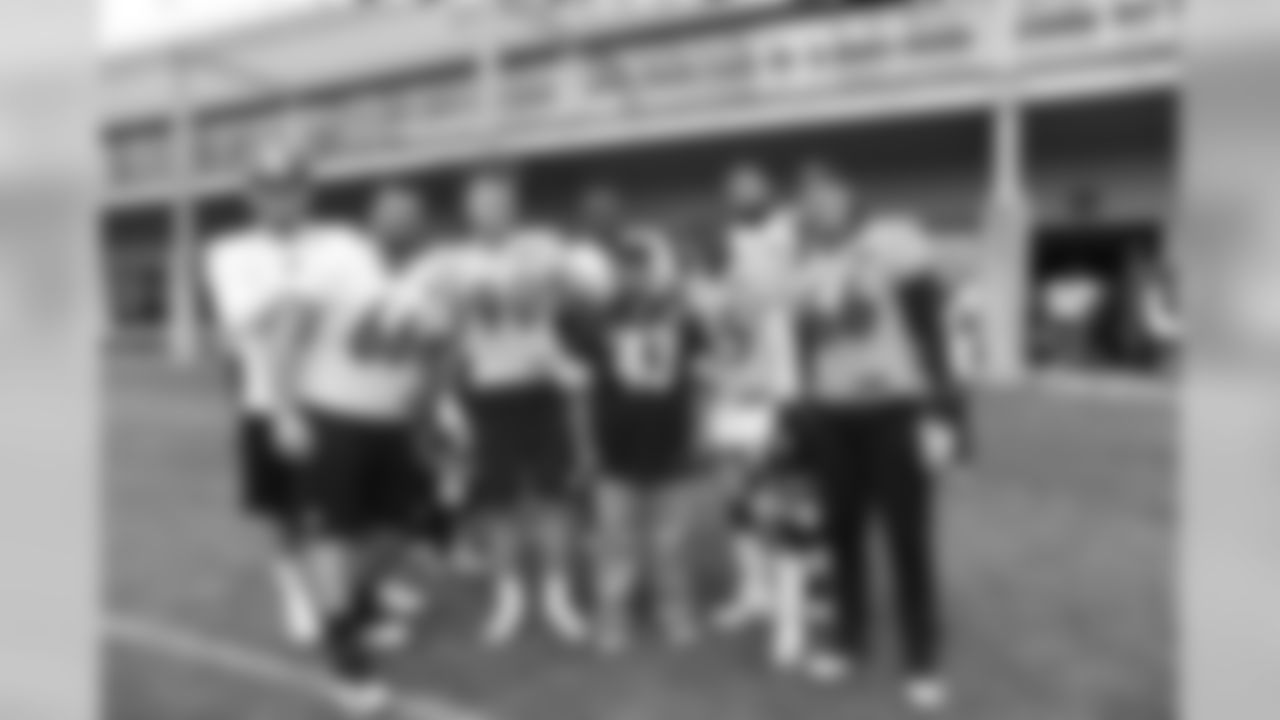

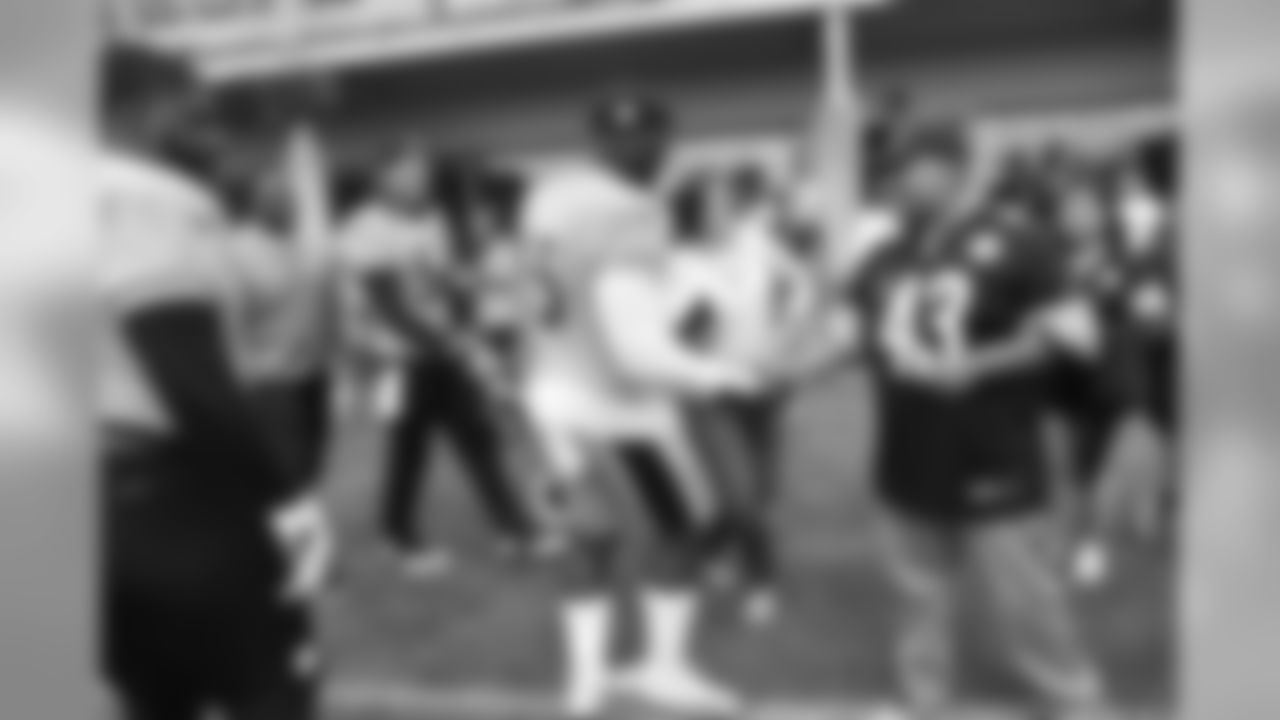
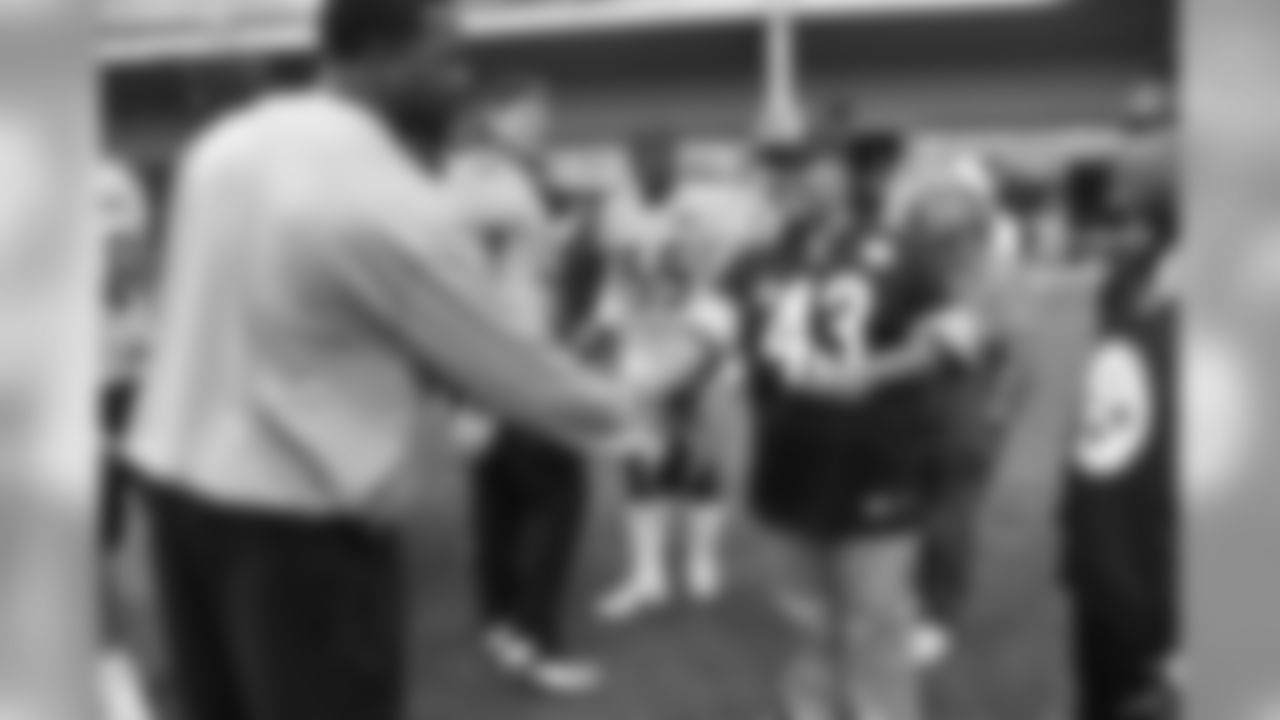
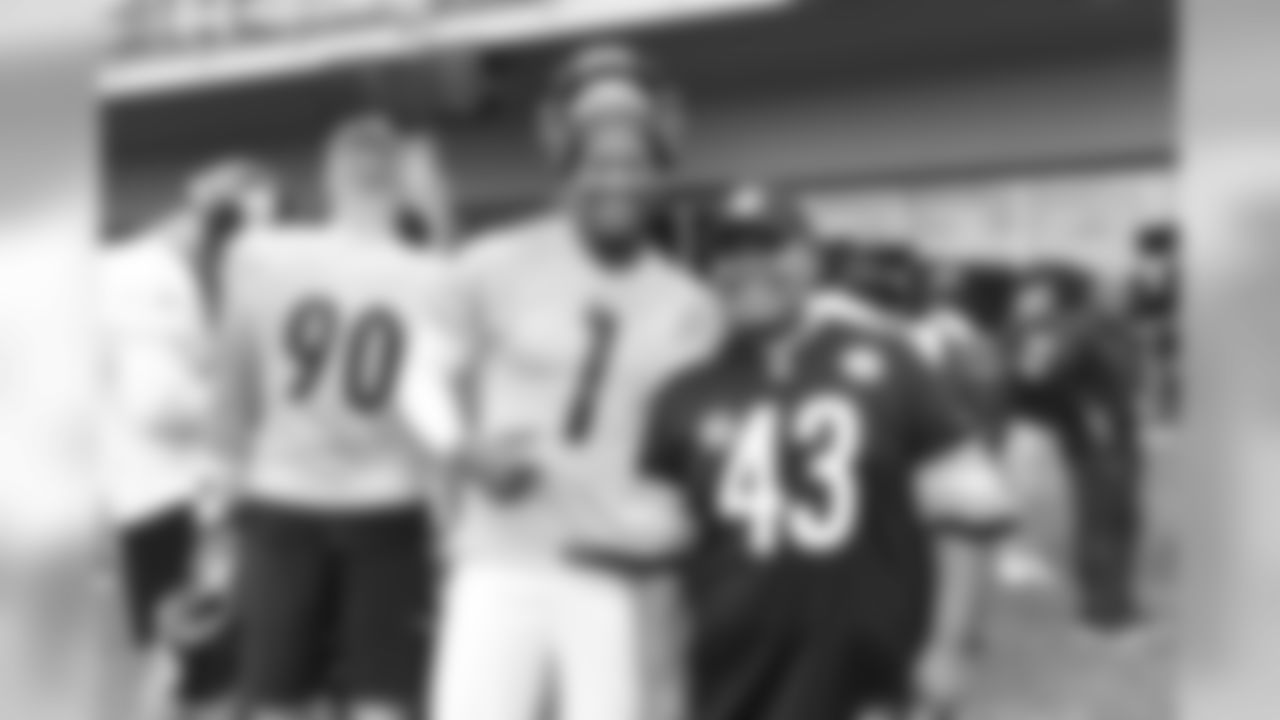
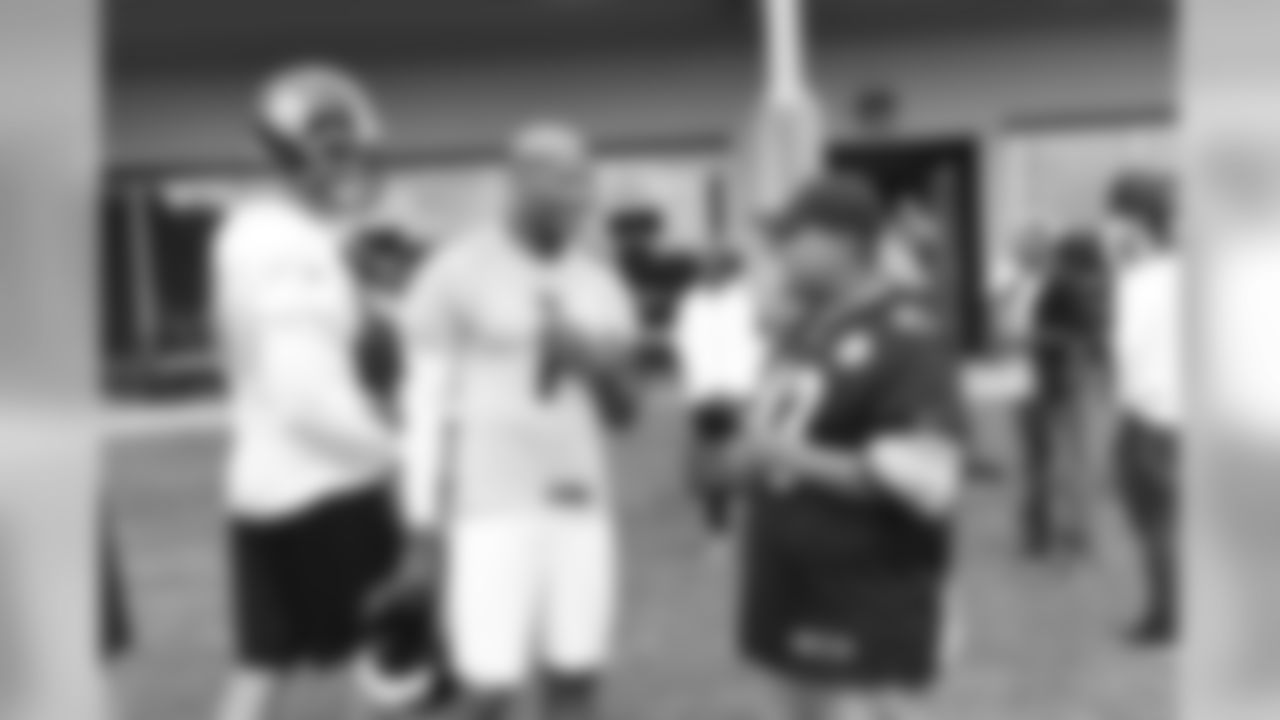
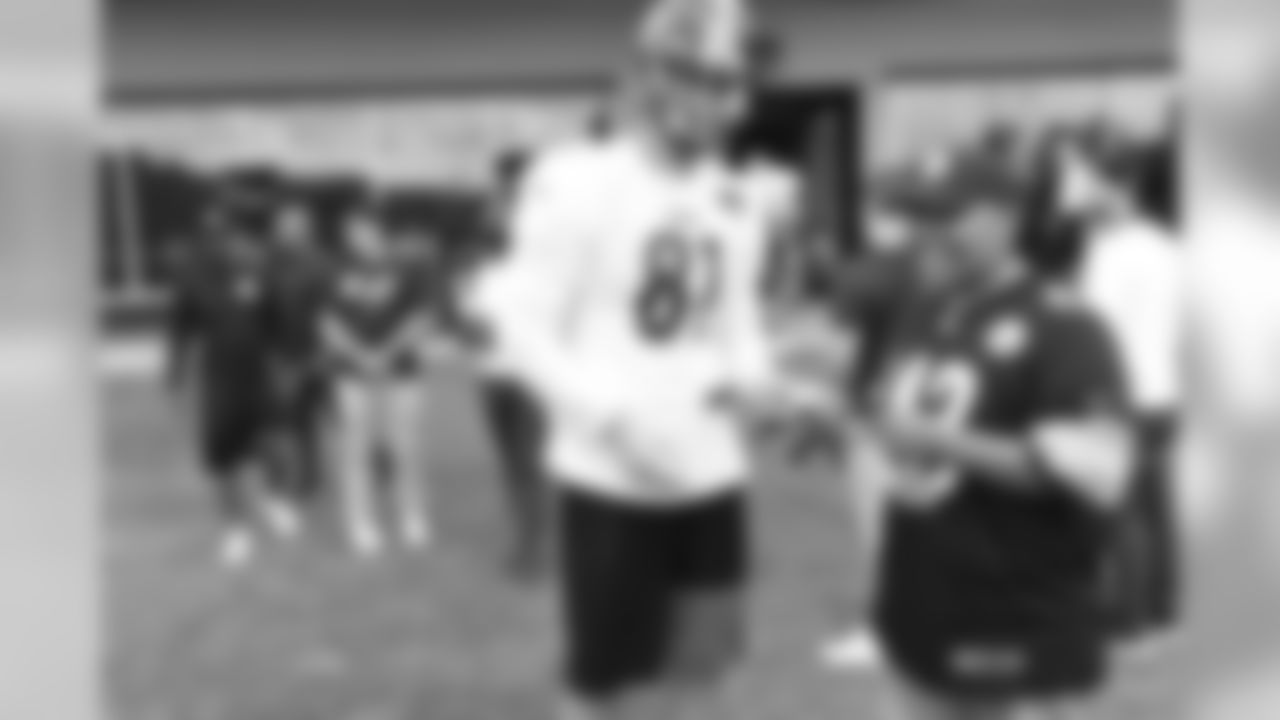
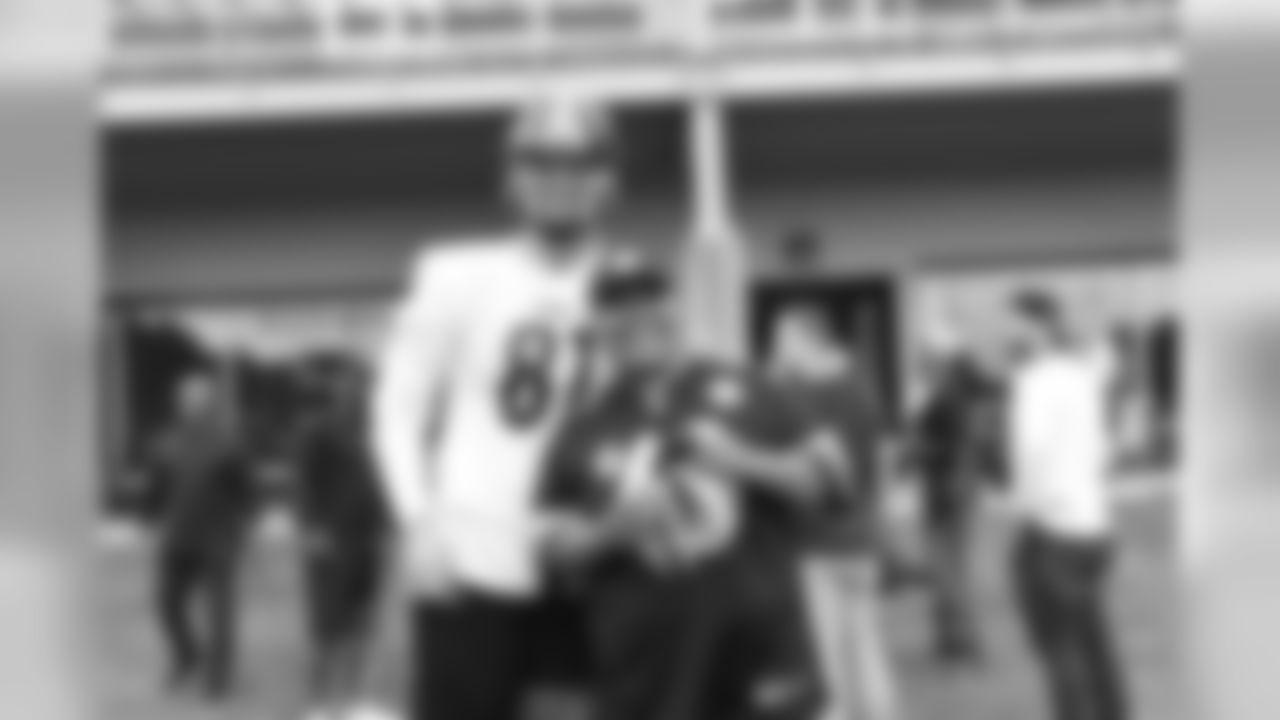
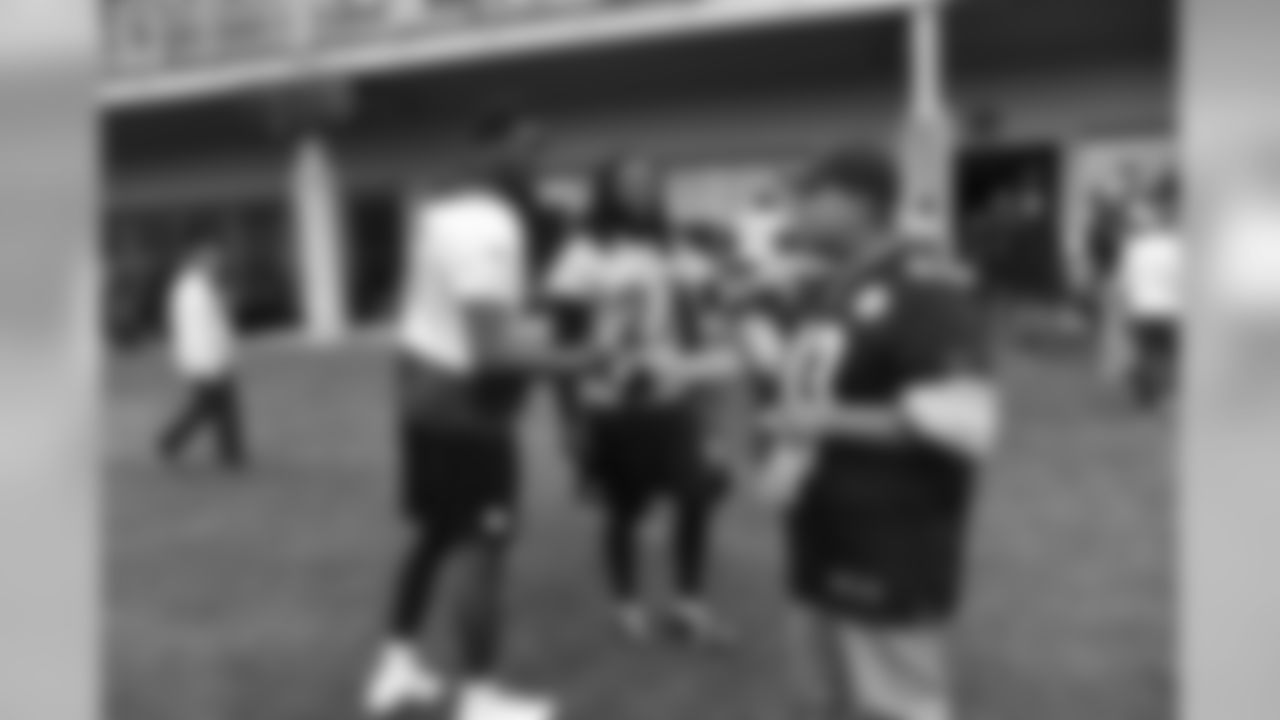
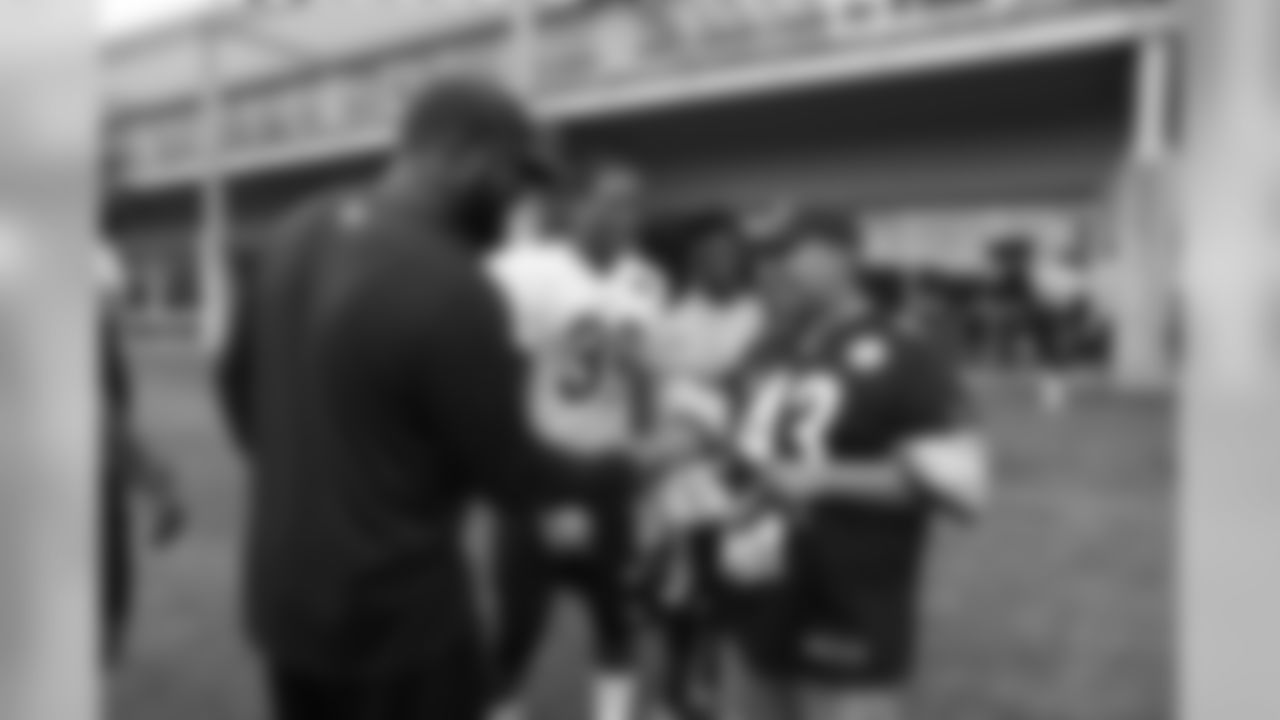
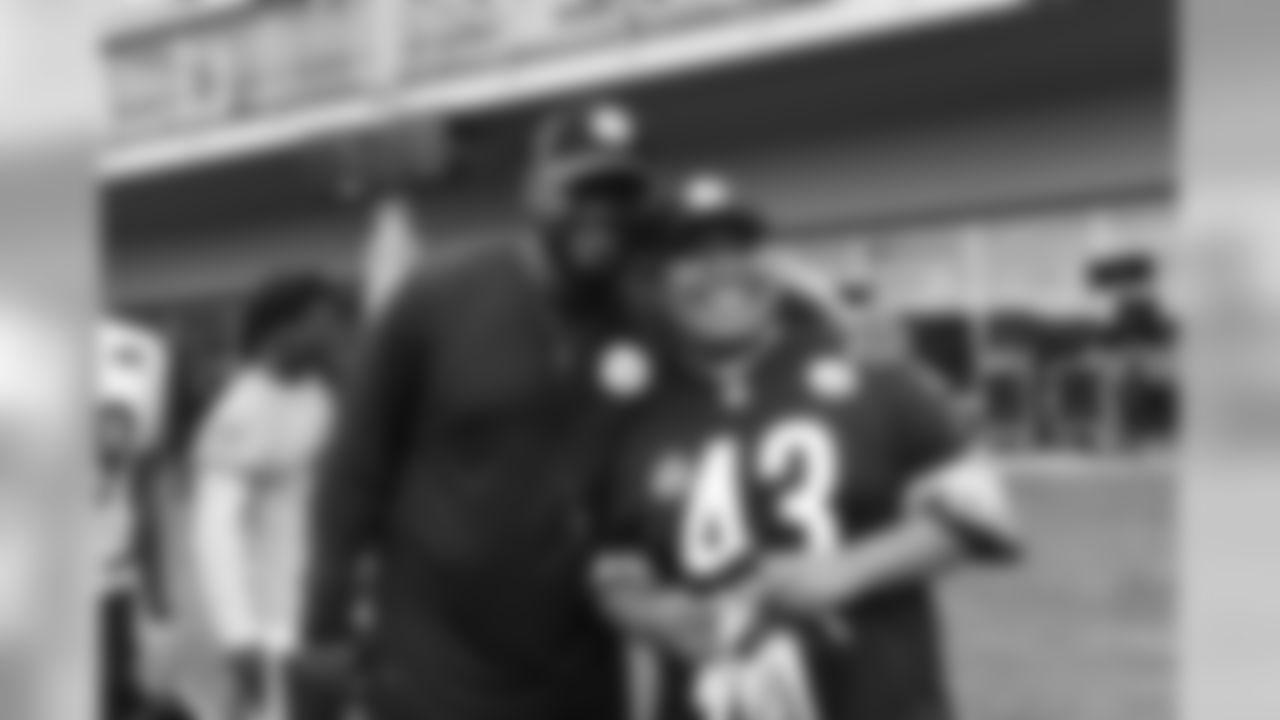
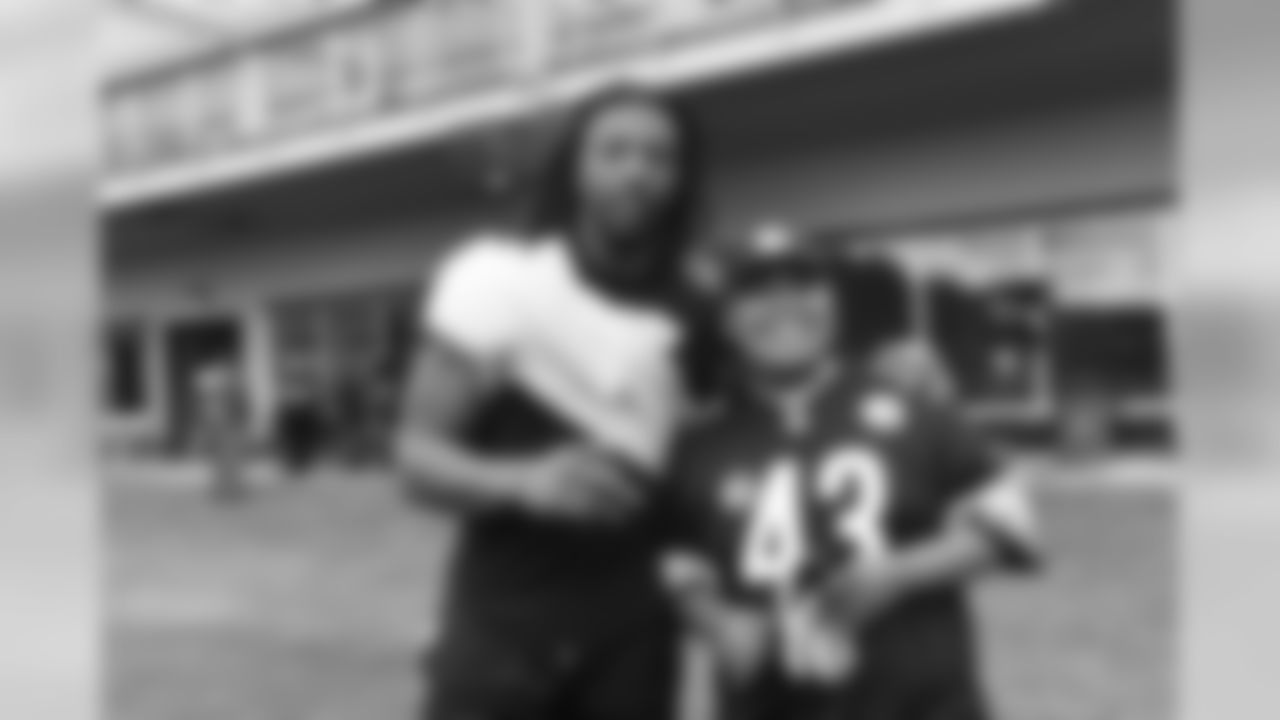
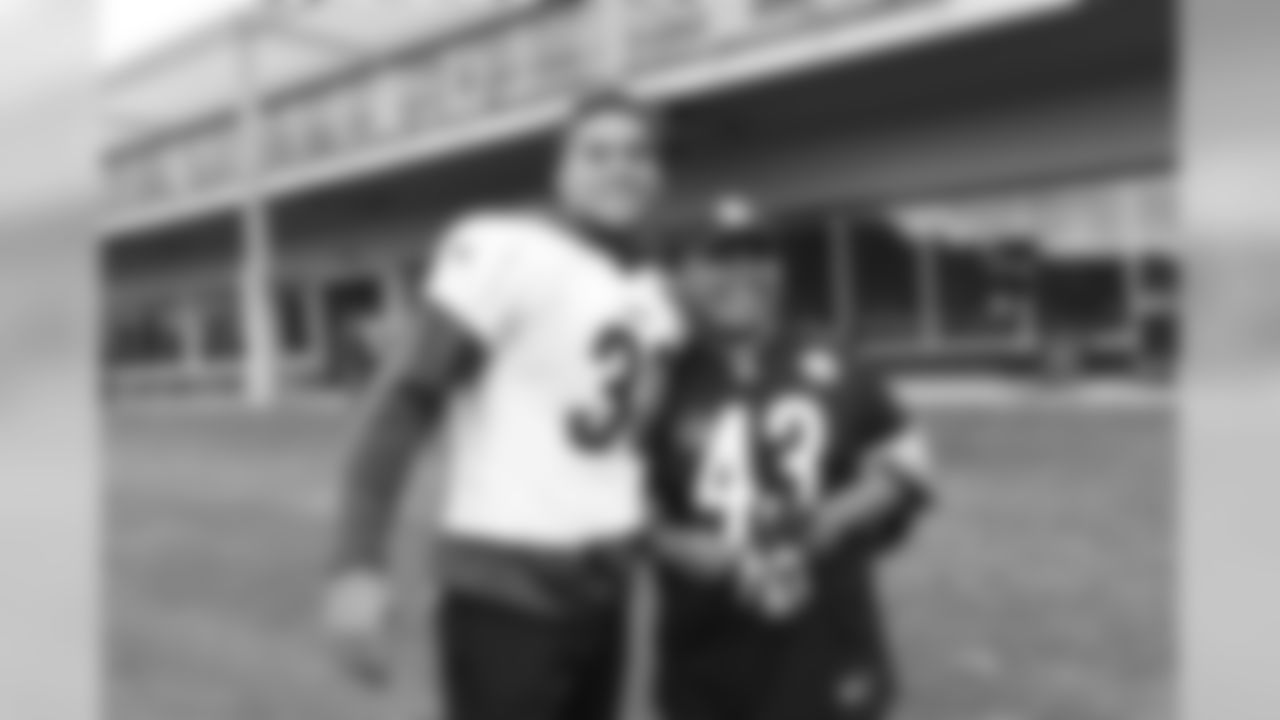














Q. Do you ever find that these guys are a little fearful of the unknown when they're getting asked to change positions?**
A. There's no question. That's why I said the willingness, the openness is probably the biggest determining factor over anything else. It has been interesting to watch guys evolve over the years. We had C.J. Goodwin here a number of years ago as a wide receiver, and we approached him about playing defensive back. He was initially resistant, maybe fearful of it. Not a lot of exposure to the position, and so it was funny watching Atlanta in the last Super Bowl and seeing C.J. lining up and playing cornerback on the biggest stage.
Q. When it comes to changing positions, have you found that it's the more talented players or the marginal ones who are most fearful?
A. If somebody is asking you to look at another position, they think it increases your chances of being here. You better be open to it.
Q. One of the things a coach does each week, usually the day before a game, is attend production meetings with the network broadcast crew for that particular game. What happens in a production meeting?
A. They're searching for anecdotes, storylines, tidbits about the players as individuals, things that might be critical in terms of how the game might unfold. Back-stories, relationships that you might have, professionally and personally, with those you're competing against. Things of that nature. It's about gathering enough information to present an entertaining product for the fans. Very rarely are they looking for tactical things. They're really looking for entertainment things geared toward information for the fans.
Q. They also will sit down with a few players. Who picks those players?
A. They do it in conjunction with our PR department. For the players, there has to be a willingness there, but it's also part of the job, and even those who aren't good at it have to work at it and challenge themselves to grow in this area and often do.
Q. There are a lot of things planned as a tribute to Dan Rooney during the pregame period today. Do you try to shield the players from all of that, or is it something you embrace and want them to experience?
A. I've always had the attitude of embracing things that go on, ceremonial things, unique things. An opportunity to honor Mr. Rooney, we'll be active participants in that. But largely, I'm a proponent of that. I don't think there's anything mystical that happens on game day. We kick the ball off, we play the game, the team that plays the best wins. I take that approach. In that vein I want the guys to appreciate some of the things going on in the stadium prior to all of that happening.





